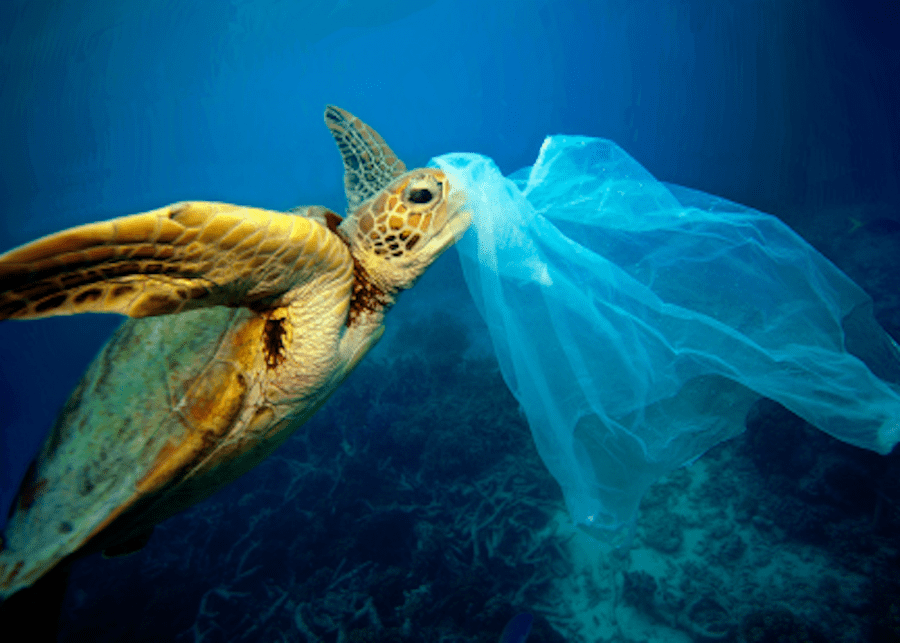
What if we told you that the very plastic you thought was “disposable” is actually ending up in our own stomach? No, I’m not trying to be idiomatic, it’s a sheer truth resulting from plastic contamination in our oceans.
A little disclaimer; the Mean Girls image was used strictly for pun purposes (no click-bait intended). Speaking of movies, the documentary A Plastic Ocean directed by Craig Leeson put into perspective the magnitude of plastic pollution and how it is destroying aquatic life. Minute things like a single plastic straw are devastating the sea animals and I don’t want my irresponsible actions to cause consequences for the voiceless animals. In 2021, I am on a mission to live a more sustainable lifestyle. Who’s with me, and how can we make it happen?

So what’s the buzz on plastic pollution, you ask?
Take a walk to your nearest pier or harbour-side promenade and take a good look at the oceanic waters. If you can’t spot any plastic waste floating, you shall be granted a million bucks. Plastic bottles, plastic wraps, and plastic bags – the image of the floating debris from single-use plastic is all too common in Hong Kong, so common that many take this lightly. We like convenience, so we like plastic as we’re told by advertisements that it is “disposable”, but here’s the catch – plastic never decomposes, it instead breaks down into tinier components which only makes matters worse. Disposable? Yes. Decomposable? Definitely not.

Since the start of the pandemic, Hong Kong eateries have switched to take-away – especially with restaurants shutting at 6pm, patrons were left with no choice but to carry their food home in takeaway plastic containers. There are roughly 7 million people in Hong Kong, imagine the amount of plastic waste per day.

We eat our food, then dispose of the plastic bags and containers – we think we’re good to go. Landfills – like the name suggests, are filled – rubbish overflows to other areas, predominantly the sea. An estimate of 8 to 14 million tonnes of plastic is dumped in the ocean every year. Sea animals at times mistake plastic for food and ingest it, but they can’t digest it. Plastic remains in their digestive system, blocking vital organs and the animals eventually die. At this point, most sea animals’ bodies contain plastic (varying in amount). Yes, the seafood you eat may be contaminated with plastic – the plastic we thought was “disposable” and have thrown in the rubbish chute, in return, ends up in our stomach.
Just how dire is the situation on plastic pollution?
Here’s where I throw in some statistics to put things into perspective.
- Around 1 million seabirds and 100,000 sea animals die from plastic pollution annually
- All baby sea turtles have plastic in their stomach
- Scientists have discovered microplastics embedded deep in the Arctic ice
- 5.25 trillion macro and micro pieces of plastic float in our ocean
- 88% of the sea’s surface is polluted by plastic
- More than 1 million plastic bags go to trash every minute
- 1 in 3 fish caught for our consumption has plastic
- Every plastic ever produced still exists somewhere
Hong Kong encompasses numerous islands, and it’s home to some unique sea creatures that aren’t found elsewhere (pink dolphins). We also have small corals offshore but with the speed of plastic pollution bolting, we may lose our sea inhabitants sooner than we think.

What can we do?
Sure enough, it’s hard to jump into a completely sustainable lifestyle in the snap of a finger – it may take weeks, months, or even years – but every small step counts.
→ cut out plastic utensils and carry your own boxes for take-away whenever possible
→ volunteer in public clean-ups whether it be for parks or beaches
→ buy products with less individual plastic packaging
→ purchase and stock up in bulks
→ recycle plastic bottles (you get 20 cents added to your Octopus card!)
→ invest in biodegradable products
→ buy from local wet markets rather than supermarkets (supermarkets’ vegetables and fruits are typically packaged with plastic, plus let’s show local vendors some love)
Read our full guide to cutting out single-use plastic from your life here. (We promise it’s easier than you think!)
In all honesty, the list goes on and sometimes, even spreading the word on plastic pollution and its severity goes a long way.

